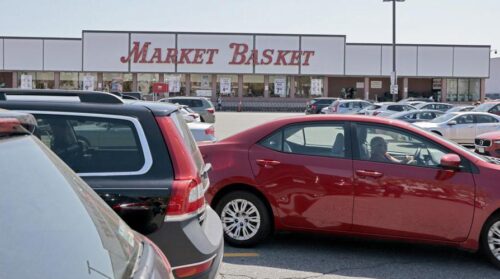NEW YORK — Toy robots that teach children to code. Sneakers made in America. Mold-resistant kitchen gadgets.
The three items are among new products that have gotten stuck in the pipeline due to President Trump’s unpredictable trade policies, according to the brand founders behind the stalled items. They say that instead of fostering US innovation, Trump’s tariffs are stifling it with extra costs and unexpected work.
At Learning Resources in Vernon Hills, Ill., Made Plus in Annapolis, Md., and Dorai Home in Salt Lake City, research and development have taken a backseat to recalculating budgets, negotiating with vendors, and tracking shipments in the shifting tariff environment.
“If we don’t have enough cash to cover just the restocks of the things that we know we need, do we want to take a risk on this new thing when we don’t know how well it will sell yet?’’ Dorai Home founder Kelsey O’Callaghan said.
O’Callaghan started the eco-friendly home goods company with a stone bath mat and now offers about 50 kitchen and bathroom accessories, which are made in China with a non-toxic material that dries quickly. New launches are critical to increasing sales and attracting customers, she said.
As Trump increased the tariff on Chinese goods to 20 percent and as high as 145 percent before reducing the import tax rate to 30 percent for 90 days, Dorai Home postponed introducing new merchandise. O’Callaghan said she had to lay off the CEO as well as the head of product development, who helped the company jump on new trends.
“I haven’t really put the time or the emphasis on (innovation) because I’m covering too many other people’s roles,’’ she said.
The company paused shipments from China in early April but resumed some on a staggered basis after the president’s rate reduction. On Wednesday, Trump touted progress in US-China trade talks.
With details still sketchy and a deal not finalized, entrepreneurs interviewed by the Associated Press said they viewed the tariffs war as an ongoing threat.
The potential stunting of innovation follows an economic slowdown during the coronavirus pandemic, when companies also had to put projects on hold. Some experts think the on-again-off again tariffs may have more enduring consequences because they rewire markets and upend business strategies.
“When executive attention shifts from innovation to regulatory compliance, the innovation pipeline suffers. Companies end up optimizing for the political landscape rather than technological advancement,’’ economists J. Bradford Jensen, a nonresident senior fellow at the Peterson Institute for International Economics, and Scott J. Wallsten, president of the Technology Policy Institute think tank, wrote in an April blog post.
Trump has argued that curtailing foreign imports with tariffs would help revive the nation’s diminished manufacturing base. Analysts and various trade groups have warned that fractured trade ties and supply chains may depress R&D activity of US tech and health care companies that rely on international partnerships or foreign suppliers.
Small companies, which often drive the innovations that create jobs and economic growth, already are under strain.
With fewer people on staff and tighter budgets compared to large corporations, entrepreneurs say they are spending more time on cutting costs, suspending or arranging orders, and deciding how much of their tariff-related costs to charge customers. That means they’re spending less time thinking of their next big ideas.
Schylling Inc., a Massachusetts company that produces modern versions of Lava lamps, Sea-Monkeys, My Little Pony, and other nostalgic toys, has its products made in China. As part of its strategy to account for tariffs, the company put a group of employees on temporary unpaid leave last month to reduce expenses.
Even some companies that do their manufacturing in the United States are scaling back investments in new products.
